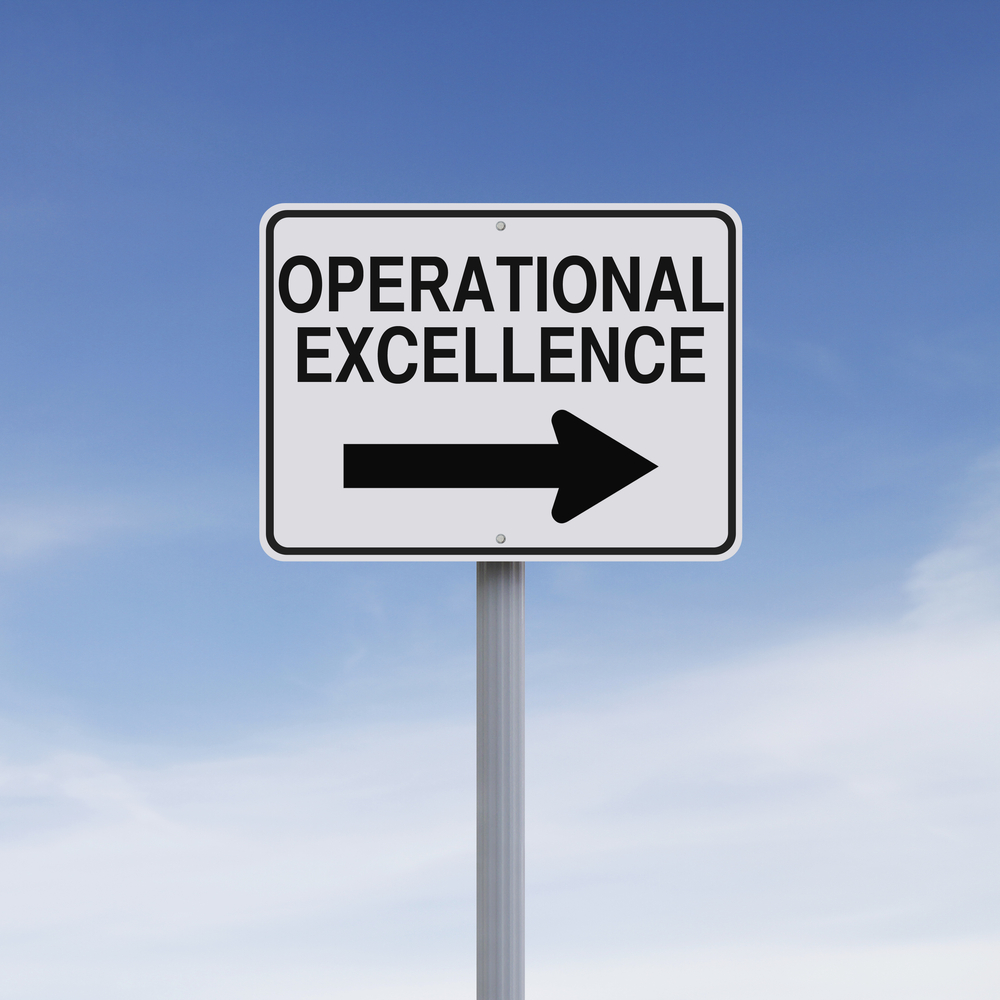In the past few years Operational Excellence (OpEx) has become one of the most prominent trends in the improvement arena, many large corporations have ambitiously applied OpEx. Because the results have often been extremely good, this has stimulated growing interest among other organizations. A serious drawback of the increasing attention that OpEx is receiving is that some companies choose to be trendy and simply follow the herd without questioning, adapting and designing an OpEx program to suit their own specific needs.
This focus on methodology, tools and techniques has also been seen in previous quality trends in the Western world—for example in quality circles, kaizen, ISO 9000, Six Sigma, Lean, Lean Six Sigma, BPM and quality award models. The hoped for results fail to be seen because of flawed application and expectations. A similar future scenario for OpEx is possible. Experience has led us to believe there are certain requirements for a successful OpEx program. By working systematically and ensuring favorable development of each requirement, it is possible to dramatically improve the chances of an organization’s activities producing the intended results.
Management Commitment and Visible Support
The likelihood of success with OpEx requires the activities being run and supported by top management. Without top management’s total commitment, achieving the organization-wide breakthroughs in attitudes OpEx requires is extremely difficult.
This top management support has been noticeable in organizations that implemented OpEx with great success. It is, therefore, extremely disturbing that in some companies we are beginning to see a tendency for OpEx not to be run by top management. It is obvious top managers in companies that have achieved success with OpEx have acted with determination and adopted a highly visible profile in doing so. As a result, improvement activities were given very high priority throughout the organization.
Another common problem is that the role of middle management in the improvement process is not always clear. Many companies have trouble getting middle level managers who will be directly affected by measures, to be active in the process itself. In the worst case, this problem can lead to a vigorous resistance to change at this level. Since middle management is normally organized on a functional basis, it may also result in sub-optimization of the improvement process.
Focus on Results
It is extremely important for Operational Excellence activities to primarily focus on achieving results. The tools and methodologies required to get results are merely aids for the improvement activities, which can vary from situation to situation. Another threat to OpEx success therefore comes from the frequently exaggerated focus on the methodologies and tools included in Lean OpEx training courses. To arrive at sound solutions, this knowledge of tools and methodologies is naturally important, but the tendency is often for them to become ends in themselves—a common phenomenon in the past with other quality initiatives. There are also indications it has become a matter of prestige for OpEx courses to include very advanced statistical tools and methodologies. Broadly based in-house training in advanced statistical methodologies may be important as a means of providing the skills needed to solve complex problems, but there is a significant risk this will be at the expense of other competencies.
This fact is particularly serious since most OpEx training programs are of roughly the same duration. Black Belt (BB) training generally lasts for four weeks, so course components will be a compromise among different, necessary areas of expertise. An important aspect of OpEx’s focus on results is to set challenging improvement goals. The concept emphasizes these should be based on facts that have been gathered and analyzed systematically. Challenging goals are needed for the overall improvement work and for individual improvement projects. It is important that these goals be explained and clarified for the entire organization, with regular refreshers.
Customer Orientation
There is a serious risk of OpEx programs becoming too inward looking. The programs are heavily geared toward internal variations, the focus is usually on production, and the OpEx training often gives lower priority to customer orientation. In this situation, the OpEx activities can become sub-optimized and lead mainly to internal cost cutting, while customers and the potential to increase revenues are ignored.
If an OpEx program is to have the maximum effect, improvement activities need to be given a distinct customer focus. This means the selection of OpEx projects must, to a considerable extent, be based on what customer benefit is attainable. It is therefore important to develop the knowledge of customer needs and behavior and evaluate completed projects from the perspective of the customer. Management must focus closely on this customer orientation.
Adaptation to an Organization’s Situation and Needs
A common belief seems to be that OpEx must have a certain common structure, include certain fixed tools and procedures and focus on a certain type of problem. Such a standardized approach can lead to a non-optimized program. The adaptation of the program to an organization has to be based on a number of parameters including the nature of the business, products, customer relations and competition.
Relevant conditions such as the employees’ level of training, attitudes and working climate, as well as the company’s financial situation and management’s commitment and knowledge will also help determine the design of a OpEx program. Even factors like country and culture can be important.
Another key adaptation should be to the size of the company. Many of the companies whose OpEx activities have received attention are relatively large. This means most of the programs, tools and methods they employ have mainly been developed to suit large businesses. It can sometimes be difficult to apply such an approach in small companies, so specific OpExprograms should be developed for them. Many aspects of a product’s quality are grounded in the supplier stage, particularly as more and more companies prefer to focus on their core business, often relying on outsourcing in other areas.
While there may be other important requirements, these are the most critical to the success factors for an Operational Excellence initiative in any organization.

















